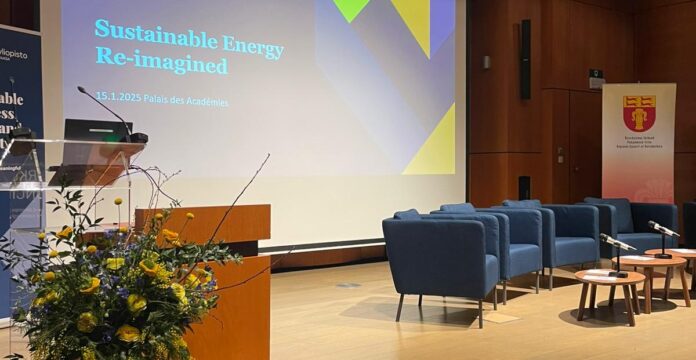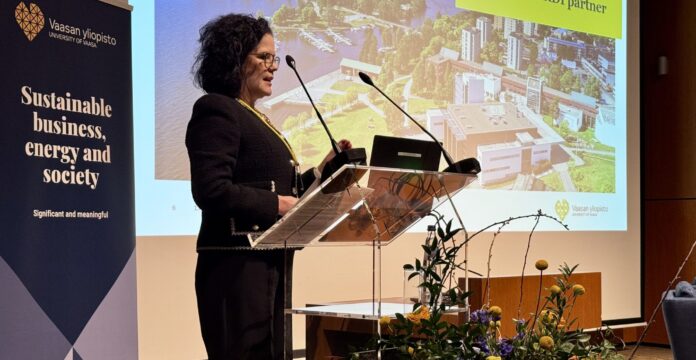You have been doing research for some time in a group and your dissertation is ready or at least in good shape. But now you’ve got a new great idea for the project and you’re ready to start preparing the project application. You may still be a young researcher, so suddenly building a project consortium is not exactly simple. So where should you start? How do you find a project consortium?
Your own network
Trust your own skills and it may very well be that you have already been able to work with suitable people in previous projects. So use your own networks. It’s also worth asking your colleagues for help, if they know how to suggest researchers, companies or other suitable partners for your project, you can often get good suggestions from them. You can also boldly approach researchers who have written articles suitable for your project idea via e-mail or LinkedIn.
You can also create your own network by participating in various conferences, seminars, pitching events, … Go around and talk at poster sessions and networking events and talk with interesting researchers. You can also apply for a grant for these trips from several different places (See the chart of potential foundations below). For example “The Academy of Finland’s bilateral mobility funding promotes the international interactions of Finnish researchers as well as the internationalisation of Finnish research environments. The mobility funding concerns the following countries: China (incl. Taiwan), Germany, India, Japan and Russia. The funding is especially designed to support early-career, postdoctoral researchers. Mobility funding is open for application each year in September.” NOTE! This may change due to Academy of Finland´s recent changes in call schedule.
| Shorter trips (conferences etc) | Longer trips | |
| January | https://postdocpooli.fi/ | |
| January | https://konkordia-liitto.com/apurahan-hakeminen/matka-apurahat-tieteellisen-jatkotutkinnon-suorittajille/ | https://emilaaltonen.fi/apurahat/hae-apurahaa/ |
| January | https://www.oskaroflund.fi/andamal-och-allmanna-instruktione?lang=fi | https://tekniikanedistamissaatio.fi/apurahahaku-2023/ |
| January | https://www.samsuomi.fi/konferenssiapuraha/ | https://www.samsuomi.fi/apurahat/ |
| February | https://www.foundationweb.net/wallenberg/foundation.html | https://www.hssaatio.fi/en/grants_application/ |
| March | https://tutkijatmaailmalle.fi/ | |
| March | https://www.mediaalantutkimussaatio.fi/tutkimustuki-apurahat/ | https://nokiafoundation.com/grants/jorma-ollila-grant/ |
| March | http://stratu.fi/ | |
| April | https://acadsci.fi/apurahat-ja-palkinnot/haettavat-apurahat/brusiinin-saatio-2/ | https://fortumnestefoundation.fi/en/scholarships/#laji |
| May | https://vaasanteknillinenseura.fi/stipendit/ | https://www.oskhuttusensaatio.net/apuraha.html |
| May | https://scancor.org/about-scancor/ | |
| May | https://www.yjs.fi/apurahat/ | |
| August | https://acadsci.fi/apurahat-ja-palkinnot/haettavat-apurahat/vaisalan-rahasto-2/ | https://postdocpooli.fi/ |
| August | https://kordelin.fi/apurahat-tiede | |
| August | https://www.lakimiesyhdistys.fi/apurahat/ | |
| August | https://erkkipaasikivensaatio.fi/ | |
| September | https://www.yjs.fi/apurahat/ | |
| September | https://www.aka.fi/en/research-funding/funding-opportunities-at-a-glance/funding-for-individual-researchers/ | |
| October | https://www.magnusehrnroothinsaatio.fi/en/grants/#travel_grant | |
| December | https://walterahlstrom.fi/etusivu/ | |
| Continuous call | https://www.nafnet.fi/apurahat/haettavat-apurahat/matka-apuraha/ | https://www.fulbright.fi/grant-programs-to-us |
| https://www.fulbright.fi/grant-programs-to-us/short-term-travel-grants-to-us | ||
| https://acadsci.fi/apurahat-ja-palkinnot/haettavat-apurahat/matematiikan-rahasto-2/ | ||
| https://sites.uwasa.fi/foundation/henkilokunnalle/ |
Take notice that several Finnish foundations are old and their website might be only in Finnish and/ or Swedish. You can also look for travel grants from Research professional: https://www.researchprofessional.com/funding-opportunities/search/26914371 or directly from funders website, for example: https://www.fulbright.fi/fulbright-finland-foundation-grant-programs .
You can also ask our research services for help, but remember that we don’t know your research field as well as you do. We can advise partners only from the financier’s point of view. That is, we can help you specify whether you should find academic partners or companies or, for example, industry associations.
Portals
Today, several different financiers have their own “dating site”, where you can present your project idea and search for suitable partners. But be on your guard and do the background work properly if and when a suitable partner appears. Free travelers may try to join, who may have to be squeezed quite tightly. But there are certainly good partners in these too, because below are a few portals:
- Interreg Baltic Sea: https://matchmaking.interreg-baltic.eu/landingpage/
- Interreg Europe: https://www.interregeurope.eu/project-ideas#what-is-a-project-idea
- Errin: https://errin.eu/partner-searches Note! If you are interested in registering for the Errin network, please contact www.wfeo.fi, because we are already members through that
- Horizon: You can approach interesting projects or researchers through the Funding & tenders portal
- Faria: https://www.faria.network/projects (if you want to cooperate with US researchers)
Previous projects
All funded projects are usually published on the financier’s website. So if you have already found a suitable financial instrument for the project, you can search for previous projects on the same topic. This is also good groundwork for writing the actual application. Below are some examples:
Projects & results | CORDIS | European Commission (europa.eu)
Programmes and projects – STN (aka.fi)
Financial instruments
As already stated above, you can apply smaller grants e.g. for seminar trips and conferences from several different foundations. In addition, there are a few financial instruments from which you can apply for funding specifically for networking.
Cost: https://www.cost.eu/ “COST funds interdisciplinary research networks called COST Actions. These Actions bring together researchers, innovators and other professionals including industry specialists, who are based in Europe and beyond, to collaborate on research topics for a period of 4 years.
The funding a COST Action receives covers the expenses of networking activities rather than research and as such is used to organise and fund events, Short-term Scientific Missions, Training Schools, communication activities, and virtual networking tools.” In addition, you can browse networks that have already received funding from the website, some of which you can join.
NOS-HS: https://nos-hs.org/ “NOS-HS aims to enhance the exchange of information between the Nordic research councils. The committee also supports collaboration between Nordic researchers by funding Nordic exploratory workshops.” This instrument is for scientists within the Humanities and Social Sciences.





